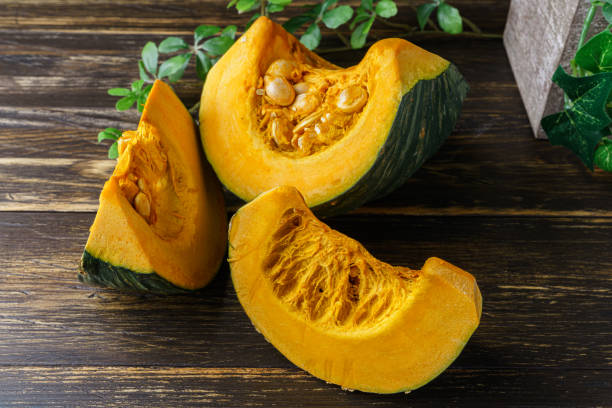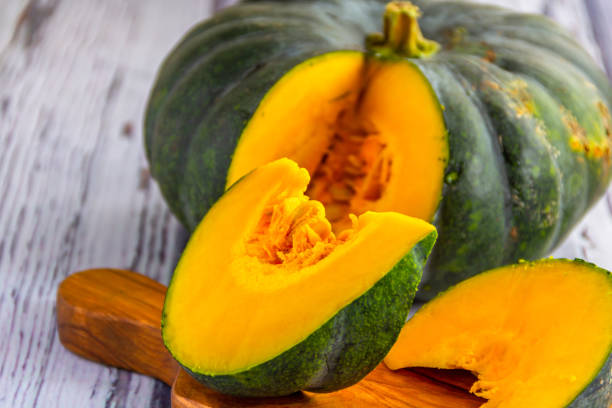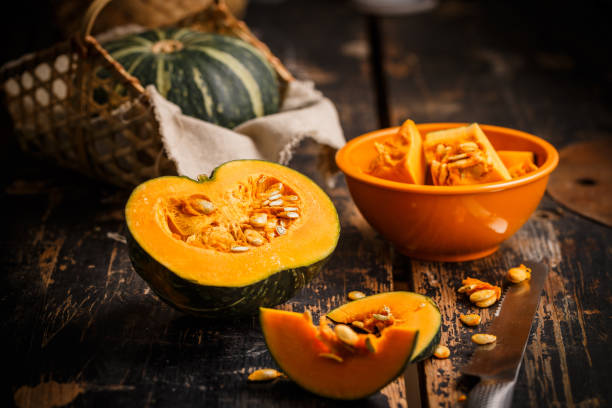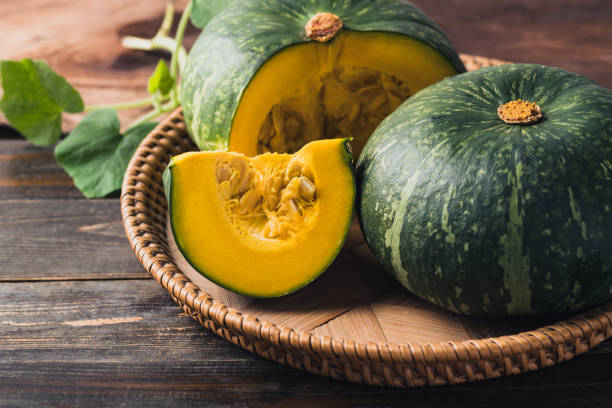Squash and Eye Health: What’s the Connection?
When it comes to protecting your eyesight, what you eat is just as important as wearing glasses. Squash—a bright, colorful, and very versatile vegetable—offers a strong mix of nutrients that help keep your eyes healthy for the long run. Whether you like it roasted, mashed into a creamy soup, or cut into noodles, squash is a tasty and easy way to support your vision every day. Adding squash to your meals gives your eyes the vitamins and antioxidants they need to stay strong and clear.
In this post, we will dive into how different kinds of squash can help improve your eye health. You’ll learn about the important nutrients found in squash that protect your vision. Plus, we’ll share simple tips and easy ways to add more squash to your daily meals so you can enjoy its eye-boosting benefits every day.
Why Eye Health Matters
Your eyes work hard every single day. Whether it’s from spending long hours looking at screens or being exposed to harmful UV rays from the sun, your eyes face a lot of stress. Over time, this can cause your vision to weaken naturally. However, a poor diet can make this happen even faster, increasing your risk for common eye problems like:
- Dry eyes
- Night blindness
- Age-related macular degeneration (AMD)
- Cataracts
The great news is that eating the right foods—especially those full of vitamins and antioxidants—can help protect your eyesight and keep your eyes healthy. Squash is one of these superfoods that can support your vision and reduce the risk of these conditions.

Types of Squash That Support Vision
Squash comes in two main types: summer squash and winter squash. Both kinds are packed with nutrients that help protect your eyes and support good vision. While they share many health benefits, summer and winter squash differ a bit in their nutrient content and how they can be used in your meals.
1. Summer Squash (like zucchini and yellow squash)
- Light in color, making it easy to spot in dishes
- Tender skin that you can often eat without peeling
- Lower in calories, perfect for healthy meals
- Contains vitamin C and a good amount of beta-carotene, both important for eye health
2. Winter Squash (like butternut, acorn, and spaghetti squash)
- Rich in deep orange and yellow pigments that support healthy vision
- Packed with vitamin A, lutein, and zeaxanthin, which help protect your eyes from damage
- High in fiber and complex carbohydrates, providing lasting energy and aiding digestion
Winter squash is especially great for eye health because it contains high levels of carotenoids. These natural pigments help protect your eyes from damage and support clear vision as you age.
Nutrients in Squash That Boost Eye Health
1. Vitamin A
Vitamin A is very important for keeping your vision strong, especially when you are in low light or darkness. If you don’t get enough vitamin A, you might experience night blindness or dry eyes. Butternut squash and acorn squash are great sources of beta-carotene, a nutrient your body changes into vitamin A.
According to the National Institutes of Health, eating just one cup of cooked butternut squash provides over 450% of the daily recommended amount of vitamin A. This makes it an excellent food choice for protecting your eyes and maintaining clear vision.
2. Lutein and Zeaxanthin
These powerful antioxidants help shield your eyes from harmful light and may reduce the risk of common eye problems like macular degeneration and cataracts. Squash, especially winter squash, is rich in lutein and zeaxanthin—two important carotenoids. These nutrients act like natural sunglasses, filtering out blue light and protecting the delicate cells inside your eyes to keep them healthy and strong.
3. Vitamin C
Vitamin C is important for keeping the blood vessels in your eyes healthy and strong. It may also help lower the chance of developing cataracts as you get older. Summer squash is a great source of vitamin C, making it a smart choice to add to your diet for better eye health.
4. Zinc
Zinc plays a key role in helping vitamin A work properly in the retina, which is essential for clear vision. Although squash has only small amounts of zinc, you can boost its eye health benefits by eating it alongside other foods rich in zinc, such as pumpkin seeds or lean meats. This combination helps support your vision even more.

How Squash Helps With Common Eye Problems
Prevents Age-Related Macular Degeneration (AMD)
Age-related macular degeneration (AMD) is one of the top causes of vision loss in older adults. Antioxidants like lutein and zeaxanthin play an important role in reducing inflammation and protecting the retina from damage.
Here’s a squash solution: Adding more butternut or kabocha squash to your meals is a natural and tasty way to help fight AMD and support healthy vision as you age.
Reduces Cataract Risk
Cataracts cause the lens in your eye to become cloudy, making it harder to see clearly. Eating foods rich in vitamin C and beta-carotene can help keep your lenses clear and healthy for longer.
Squash solution: Try roasting spaghetti squash as a tasty side dish or use it as a healthy alternative to pasta. It’s an easy way to add these important nutrients to your diet and support your eye health.
Improves Night Vision
Low levels of vitamin A can make it hard to see well in dim or low light. Squash helps restore this important nutrient and supports the health of your retina, which is key for good vision.
Squash solution: Try pureeing cooked acorn squash into soups for a warm, comforting meal that also boosts your eye health.
Easy Ways to Add Squash to Your Diet
Including more squash in your meals is simple. Here are some delicious and healthy ideas:
Meal Ideas
- Butternut Squash Soup – Creamy and comforting
- Zucchini Noodles (“Zoodles”) – A fun low-carb pasta swap
- Roasted Acorn Squash – Drizzle with olive oil and a pinch of cinnamon
- Stuffed Spaghetti Squash – Fill with veggies, lean meat, or beans
- Grilled Yellow Squash – A perfect summer side
Shopping Tips
- Choose squash with firm skin and no soft spots.
- Look for bright, vibrant colors, which indicate high nutrient content.
- Store winter squash in a cool, dark place for longer shelf life.
Best Pairings for Better Nutrient Absorption
Your body absorbs fat-soluble vitamins, like vitamin A, much better when you eat them with healthy fats. To get the most eye health benefits from squash, try pairing it with foods that have good fats, such as:
- Olive oil
- Avocados
- Nuts and seeds
- Salmon or other fatty fish
For example, a bowl of roasted squash drizzled with olive oil and topped with crunchy pumpkin seeds makes a delicious meal that’s great for your vision and overall health.ve oil and a sprinkle of pumpkin seeds makes for a tasty and vision-friendly meal.
What the Research Says
Science supports the eye health benefits of squash. A study published in the journal Nutrients found that eating a diet high in carotenoids—such as beta-carotene and lutein—can lower the risk of age-related macular degeneration (AMD) and cataracts. These nutrients, which are abundant in squash, play a key role in protecting your vision over time.
Another study published in the American Journal of Clinical Nutrition found that people who ate more lutein and zeaxanthin enjoyed better vision health over the long term. These nutrients help protect the eyes from damage and keep your eyesight sharp as you age.
Adding squash to your meals isn’t just delicious—it’s also a smart choice supported by science. With its rich nutrients that protect and improve eye health, squash helps keep your vision clear and strong for years to come.
Tips for Cooking Squash Without Losing Nutrients
To get the most eye health benefits from squash, follow these cooking tips:
- Steam or roast instead of boiling to preserve vitamins.
- Eat the skin of summer squash for added fiber and antioxidants.
- Avoid heavy creams or sugar in recipes that can offset squash’s health benefits.
- Store it properly—keep squash in a cool, dry place to retain nutrients.

Squash vs. Other Eye-Healthy Foods
While squash is a great choice, variety is key. Here’s how it stacks up:
| Food | Vitamin A | Lutein/Zeaxanthin | Vitamin C |
|---|---|---|---|
| Butternut Squash | ✅✅✅ | ✅✅ | ✅ |
| Carrots | ✅✅✅ | ✅ | ❌ |
| Spinach | ✅ | ✅✅✅ | ✅✅ |
| Zucchini | ✅ | ✅ | ✅✅ |
Squash holds its own among other eye-healthy foods and makes a colorful addition to any diet.
Who Should Eat More Squash?
Everyone can benefit from more squash, but it’s especially helpful for:
- Older adults – to help slow age-related vision changes
- People with a family history of eye conditions
- Smokers and ex-smokers – higher risk of vitamin A deficiency
- Screen-heavy workers – combat blue light damage
- Children – for healthy eye development
Final Thoughts: Squash Is a Vision-Smart Superfood
Eating more squash is a simple, tasty way to protect your eyes. Whether you’re concerned about long hours on screens, aging, or just want to keep your vision sharp, squash provides the nutrients your eyes need to stay strong.
To recap, squash:
- Delivers vitamin A, lutein, and zeaxanthin
- Helps prevent common vision problems
- Is easy to add to everyday meals
- Works best when paired with healthy fats
Start adding more squash to your meals today! Your eyes will thank you.

